artificial intelligence
Google Releases Supercharged Version of Flagship AI Model Gemini
Published
2 days agoon
By
admin
Google has made good on its promise to open up its most powerful AI model, Gemini 1.5 Pro, to the public following a beta release last month for developers.
Google’s Gemini 1.5 Pro is able to handle more complex tasks than other AI models before it, such as analyzing entire text libraries, feature-length Hollywood movies, or almost a full day’s worth of audio data. That’s 20 times more data than OpenAI’s GPT-4o and almost 10 times the information that Anthropic’s Claude 3.5 Sonnet is capable of managing.
The goal is to put faster and lower-cost tools in the hands of AI developers, Google said in its announcement, and “enable new use cases, additional production robustness and higher reliability.”
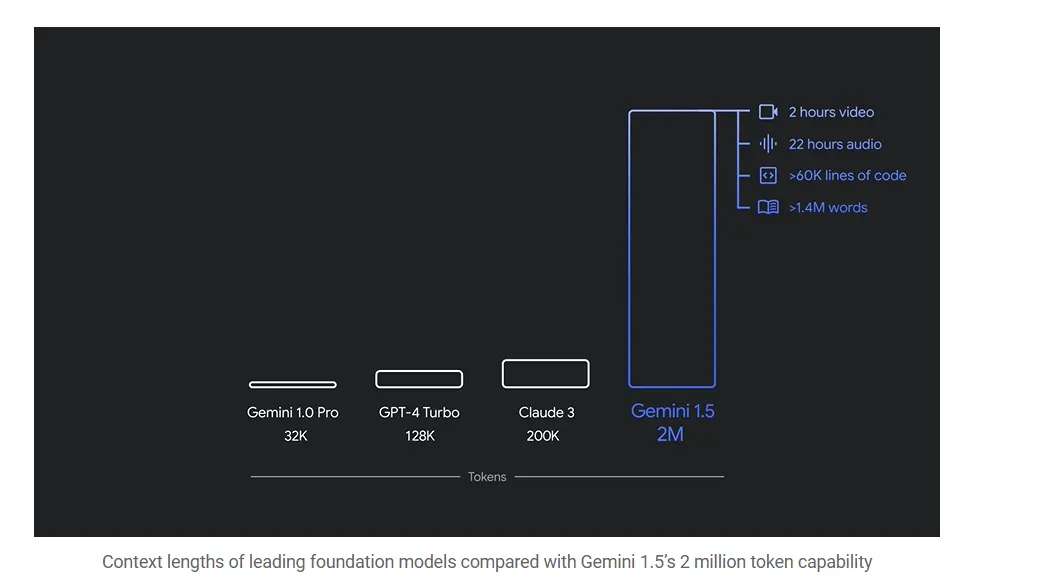
Google had previously unveiled the model back in May, showcasing videos of how a select group of beta testers were capable of harnessing its capabilities. For example, machine-learning engineer Lukas Atkins fed the model with the entire Python library and asked questions to help him solve an issue. “It nailed it,” he said in the video. “It could find specific references to comments in the code and specific requests that people had made.”
Another beta tester took a video of his entire bookshelf and Gemini created a database of all the books he owned—a task that is almost impossible to achieve with traditional AI chatbots.
Gemma 2 Comes to Dominate the Open Source Space
But Google is also making waves in the open source community. The company today released Gemma 2 27B, an open source large language model that quickly claimed the throne of the open source model with the highest-quality responses, according to the LLM Arena ranking.
Google claims Gemma 2 offers “best-in-class performance, runs at incredible speed across different hardware and easily integrates with other AI tools.” It’s meant to compete with models “more than twice its size,” the company says.
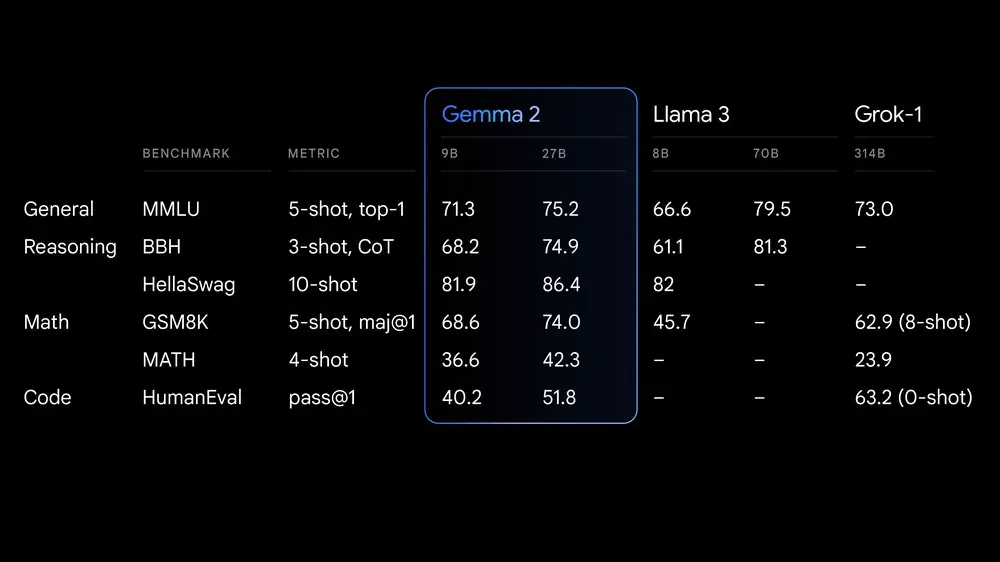
The license for Gemma 2 allows for free access and redistribution, but is still not the same as traditional open-source licenses like MIT or Apache. The model is designed for more accessible and budget-friendly AI deployments in both its 27B and and the smaller 9B versions.
This matters for both average and enterprise users because, unlike what close models offer, a powerful open model like Gemma is highly customizable. That means users can fine tune their models to excel at specific tasks, protecting their data by running such models locally.
For example, Microsoft’s small language model Phi-3 has been fine tuned specifically for math problems, and can beat larger models like Llama-3 and even Gemma 2 itself in that field.
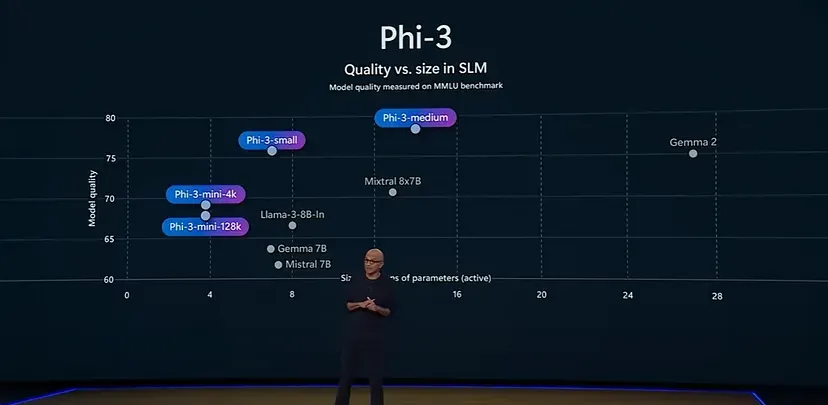
Gemma 2 is now available in Google AI Studio, with model weights available for download from Kaggle and Hugging Face Models with the powerful Gemini 1.5 Pro available for developers to test it on Vertex AI.
Generally Intelligent Newsletter
A weekly AI journey narrated by Gen, a generative AI model.
Source link
You may like


Top cryptocurrencies to watch this week: MOG, KAS, FET


CurveDAO (CRV) Nears All-Time Low Following Whale Deposit to Binance: On-Chain Data


Japanese Tech Giant Sony Enters Crypto Exchange Business With This Acquisition


Bitcoin ATM installations reach 38k, below the all-time high


Mark Cuban and ChatGPT Predicts Best Pick


This Week in Crypto Games: Dr. Disrespect Dumped, Pixelverse and Catizen Tokens, Notcoin ‘Fresh Start’
AGIX
Coinbase Won’t Support Upcoming AI Token Merger Between Fetch.ai, Ocean Protocol and SingularityNET
Published
2 days agoon
June 29, 2024By
admin
Top US exchange Coinbase is not going to facilitate the planned merger of multiple artificial intelligence altcoin projects into a single new crypto.
In an announcement via the social media platform X, Coinbase says that customers will have to initiate the merger on their own.
“Ocean (OCEAN) and Fetch.ai (FET) have announced a merger to form the Artificial Superintelligence Alliance (ASI). Coinbase will not execute the migration of these assets on behalf of users.”
In March, Fetch.ai (FET), Singularitynet (AGIX) and Ocean Protocol (OCEAN) announced a plan to merge with an aim to create the largest independent player in artificial intelligence (AI) research and development, which they are calling the Artificial Superintelligence Alliance (ASI).
The merger is happening in phases, beginning July 1st, according to a recent project update.
“Starting July 1, the token merger will temporarily consolidate SingularityNET’s AGIX and Ocean Protocol’s OCEAN tokens into Fetch.ai’s FET, before transitioning to the ASI ticker symbol at a later date. This update enables an efficient execution of the token merger, and outlines the timelines and crucial steps for token holders, ensuring a smooth and transparent process.”
Coinbase says users can effect the merger on their own using their wallets.
“Once the migration has launched, users will be able to migrate their OCEAN and FET to ASI using a self-custodial wallet, such as Coinbase Wallet. The ASI token merger will be compatible with all major software wallets.”
Don’t Miss a Beat – Subscribe to get email alerts delivered directly to your inbox
Check Price Action
Follow us on X, Facebook and Telegram
Surf The Daily Hodl Mix
 

Disclaimer: Opinions expressed at The Daily Hodl are not investment advice. Investors should do their due diligence before making any high-risk investments in Bitcoin, cryptocurrency or digital assets. Please be advised that your transfers and trades are at your own risk, and any losses you may incur are your responsibility. The Daily Hodl does not recommend the buying or selling of any cryptocurrencies or digital assets, nor is The Daily Hodl an investment advisor. Please note that The Daily Hodl participates in affiliate marketing.
Generated Image: Midjourney
Source link
24/7 Cryptocurrency News
Impact & Future of Artificial Intelligence (AI) in Cryptocurrency Market
Published
3 days agoon
June 28, 2024By
admin
Artificial Intelligence is fast becoming popular in most industries including the crypto. The thought of high-end machine learning and programming to perform advanced tasks has ignited widespread research. This led to an increase in buzzwords infused in many sectors creating positives and controversies.
AI has already left its footprint on the crypto market with investors looking forward to more trading functionalities, market utility, and analysis. On the part of developers, the technology makes things easier by scaling up programs and decentralized applications. However, there are some challenges involved pointed out by policy watchers. Here are the impact of AI on the crypto market.
Artificial Intelligence on Trading
Artificial intelligence can be used to analyze large amounts of data with seamless algorithms which can help traders in some cases. AI tools can point out key market indices, trends, and technical analysis for trades. Most technologies can also be used to execute trades automatically making seamless transactions for users.
The machine language can help the technology source news and industry data for community spaces as well as current sentiments.
Regulations and Security
Authorities can leverage AI to provide an added layer of security to flush out certain types of scams. Crypto executives can also deploy the technology for a similar purpose on applications. The advanced algorithm can help with hack cases and fraud detection.
However, Artificial Intelligence can be wrongly used to float some advanced-level scams that can cause losses running into millions. This is a downside to the positives widespread losses can cause a decline in sentiments plunging the asset class.
Impact on AI Coins
Apart from price and market analysis artificial intelligence has contributed to the growth of the market cap through AI coins. AI coins tend to surge with developments with big firms like Nvidia. This month, the chip maker became the largest company by market cap, and AI coin prices went through the roof.
Also Read: Solana Hits Double Digit Weekly Gains: Is the Bear Trend Over?
David is a finance news contributor with 4 years of experience in Blockchain Technology and Cryptocurrencies. He is interested in learning about emerging technologies and has an eye for breaking news. Staying updated with trends, David reported in several niches including regulation, partnerships, crypto assets, stocks, NFTs, etc. Away from the financial markets, David goes cycling and horse riding.
The presented content may include the personal opinion of the author and is subject to market condition. Do your market research before investing in cryptocurrencies. The author or the publication does not hold any responsibility for your personal financial loss.
Source link
artificial intelligence
OpenAI Delays Release of Controversial Voice Feature, Sparking Backlash
Published
4 days agoon
June 27, 2024By
admin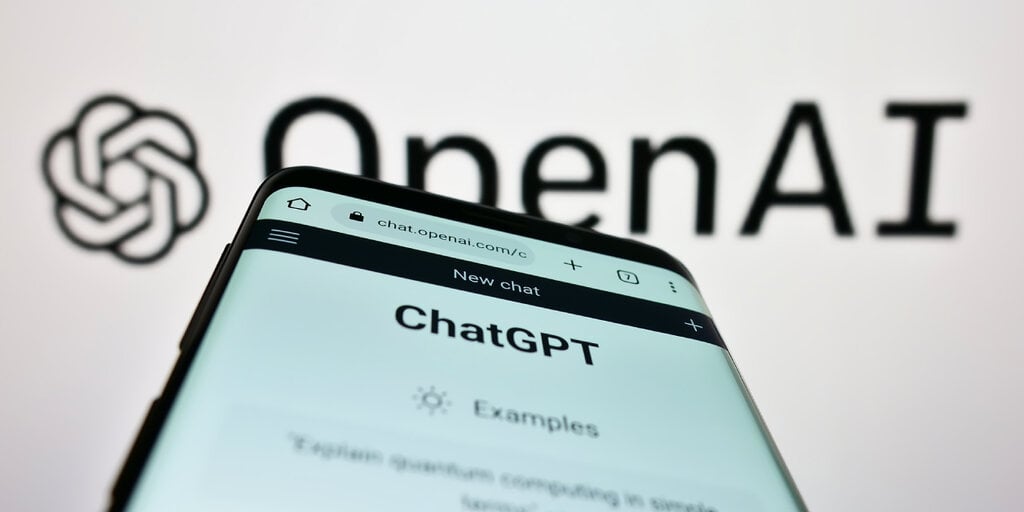
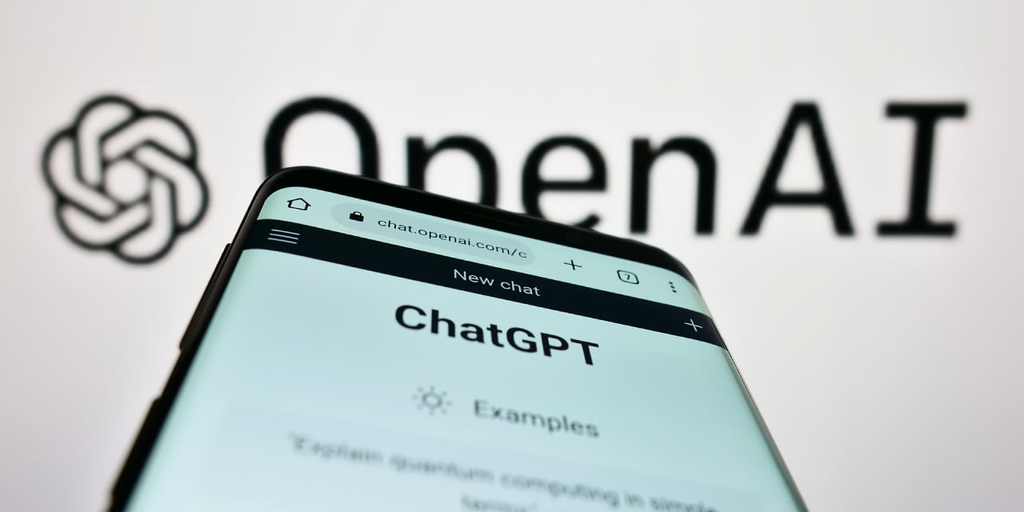
OpenAI, the artificial intelligence research company behind ChatGPT, pushed back the launch of its Voice Mode on Wednesday, a standout upcoming feature that made waves when it was showed off at its product update last month. The company said it needs “one more month” to work on it—and the announcement has sparked harsh criticism from users and the AI community.
Its Voice Mode was perhaps the most compelling announcement at the OpenAI event, unveiled alongside the release of its latest large-language model, ChatGPT-40. It allowed users to interact with the chatbot via voice and engage in a natural-sounding conversation.
The demonstration also invited comparisons to the science fiction film “Her,” featuring a virtual companion voiced by actress Scarlett Johansson. Johansson soon threatened OpenAI with legal action over the similar-sounding voice, and the company soon announced it was removing the voice from its library.
In announcing the delay, OpenAI said it was unable to advance the feature in a limited “alpha” release in June as planned because it needed more work.
“We’re improving the model’s ability to detect and refuse certain content,” the company explained. “We’re also working on improving the user experience and preparing our infrastructure to scale to millions while maintaining real-time responses.”
We’re sharing an update on the advanced Voice Mode we demoed during our Spring Update, which we remain very excited about:
We had planned to start rolling this out in alpha to a small group of ChatGPT Plus users in late June, but need one more month to reach our bar to launch.…
— OpenAI (@OpenAI) June 25, 2024
Users didn’t like what they read, and OpenAI’s announcement quickly met a wave of disdain from the AI community.
Many critics were quick to point out OpenAI’s history of overpromising and underdelivering, comparing its track record to its competitors. “Be like Anthropic,” tweeted AI enthusiast Ashutosh Shrivastava. “They don’t demo and create hype only to go silent for 3-4 months.”
AI Youtuber Matt Wolfe claimed the delay is part of OpenAI’s business strategy.
“Show off something exciting to demonstrate how far ahead of everyone else you are and then never actually let people use it,” he said, calling the move the “Sora Treatment.” Generative video tool Sora is another OpenAI product that has received extensive praise but is still not widely available.
Looks like we’re getting the “Sora Treatment” from OpenAI with the Advanced Voice Mode… Show off something exciting to demonstrate how far ahead of everyone else you are and then never actually let people use it. https://t.co/xZ8a9GPD0U
— Matt Wolfe (@mreflow) June 26, 2024
Benjamin De Kraker, creator of FinalFrame AI, shared his frustrations, claiming that OpenAI touts specific features that are later killed due to lack of use or interest.
“Plugins died, GPT Store died, Voice is delayed, Memory is mediocre,” he tweeted, “Core model and API are solid, but all the ‘this changes how people use AI!’ hype stuff has bombed.”
The delay has also led many users to question the value of their ChatGPT Plus subscriptions. Peruvian medical researcher Patrick Wieghardt suggested that it might be time to end his subscription, while another user stated that they had already canceled theirs. “Right now I see no point in paying for what you’re offering for free anyway,” an AI newsletter publisher wrote.
Some observers think the full release of Voice Mode could be several months away. Ryan Morrison, AI Editor at Tom’s Guide, said he believes mid-November is a more realistic timeframe—after the U.S. elections.
I’ve said for a while that I don’t think we’ll see the full suite of generative audio, video and image features OpenAI unlocked with Sora and Omni until after to the US election in November.
They say Fall for Plus users for Advanced Voice. So maybe mid-November is about right… https://t.co/paug2P2367
— Ryan Morrison (@RyanMorrisonJer) June 26, 2024
OpenAI didn’t immediately respond to a request for comments from Decrypt.
Edited by Ryan Ozawa.
Generally Intelligent Newsletter
A weekly AI journey narrated by Gen, a generative AI model.
Source link

Top cryptocurrencies to watch this week: MOG, KAS, FET

CurveDAO (CRV) Nears All-Time Low Following Whale Deposit to Binance: On-Chain Data

Japanese Tech Giant Sony Enters Crypto Exchange Business With This Acquisition

Bitcoin ATM installations reach 38k, below the all-time high

Mark Cuban and ChatGPT Predicts Best Pick

This Week in Crypto Games: Dr. Disrespect Dumped, Pixelverse and Catizen Tokens, Notcoin ‘Fresh Start’

June sales drop 47% but there are more buyers and sellers

Toncoin Whales Just Started Buying This Coin; Is $10 Next?

SEC Sues Consensys Over MetaMask Staking, Broker Allegations

Cryptocurrency after the European Union’s MiCA regulation

Charles Hoskinson Flags Major Ongoing AI Censorship Trend

Catch up on Render and BNB price spike; enhance wallets with top analyst pick
Bitcoin Remains Bullish As New BTC Addresses Surge To New 2-Month Highs

XRP Price May Soar Past $6, Here’s Why

Popcat up over 90%, as SHIB and DOGE see price declines

Bitcoin Dropped Below 2017 All-Time-High but Could Sellers be Getting Exhausted? – Blockchain News, Opinion, TV and Jobs

What does the Coinbase Premium Gap Tell us about Investor Activity? – Blockchain News, Opinion, TV and Jobs
BNM DAO Token Airdrop
A String of 200 ‘Sleeping Bitcoins’ From 2010 Worth $4.27 Million Moved on Friday

NFT Sector Keeps Developing – Number of Unique Ethereum NFT Traders Surged 276% in 2022 – Blockchain News, Opinion, TV and Jobs
New Minting Services

Block News Media Live Stream

SEC’s Chairman Gensler Takes Aggressive Stance on Tokens – Blockchain News, Opinion, TV and Jobs

Friends or Enemies? – Blockchain News, Opinion, TV and Jobs

Enjoy frictionless crypto purchases with Apple Pay and Google Pay | by Jim | @blockchain | Jun, 2022

Block News Media Live Stream

How Web3 can prevent Hollywood strikes

Block News Media Live Stream

XRP Explodes With 1,300% Surge In Trading Volume As crypto Exchanges Jump On Board

Block News Media Live Stream
Trending

 Altcoins2 years ago
Altcoins2 years agoBitcoin Dropped Below 2017 All-Time-High but Could Sellers be Getting Exhausted? – Blockchain News, Opinion, TV and Jobs

 Binance2 years ago
Binance2 years agoWhat does the Coinbase Premium Gap Tell us about Investor Activity? – Blockchain News, Opinion, TV and Jobs
- Uncategorized3 years ago
BNM DAO Token Airdrop

 Bitcoin miners2 years ago
Bitcoin miners2 years agoA String of 200 ‘Sleeping Bitcoins’ From 2010 Worth $4.27 Million Moved on Friday

 BTC1 year ago
BTC1 year agoNFT Sector Keeps Developing – Number of Unique Ethereum NFT Traders Surged 276% in 2022 – Blockchain News, Opinion, TV and Jobs
- Uncategorized3 years ago
New Minting Services

 Video2 years ago
Video2 years agoBlock News Media Live Stream

 Bitcoin1 year ago
Bitcoin1 year agoSEC’s Chairman Gensler Takes Aggressive Stance on Tokens – Blockchain News, Opinion, TV and Jobs


✓ Share: